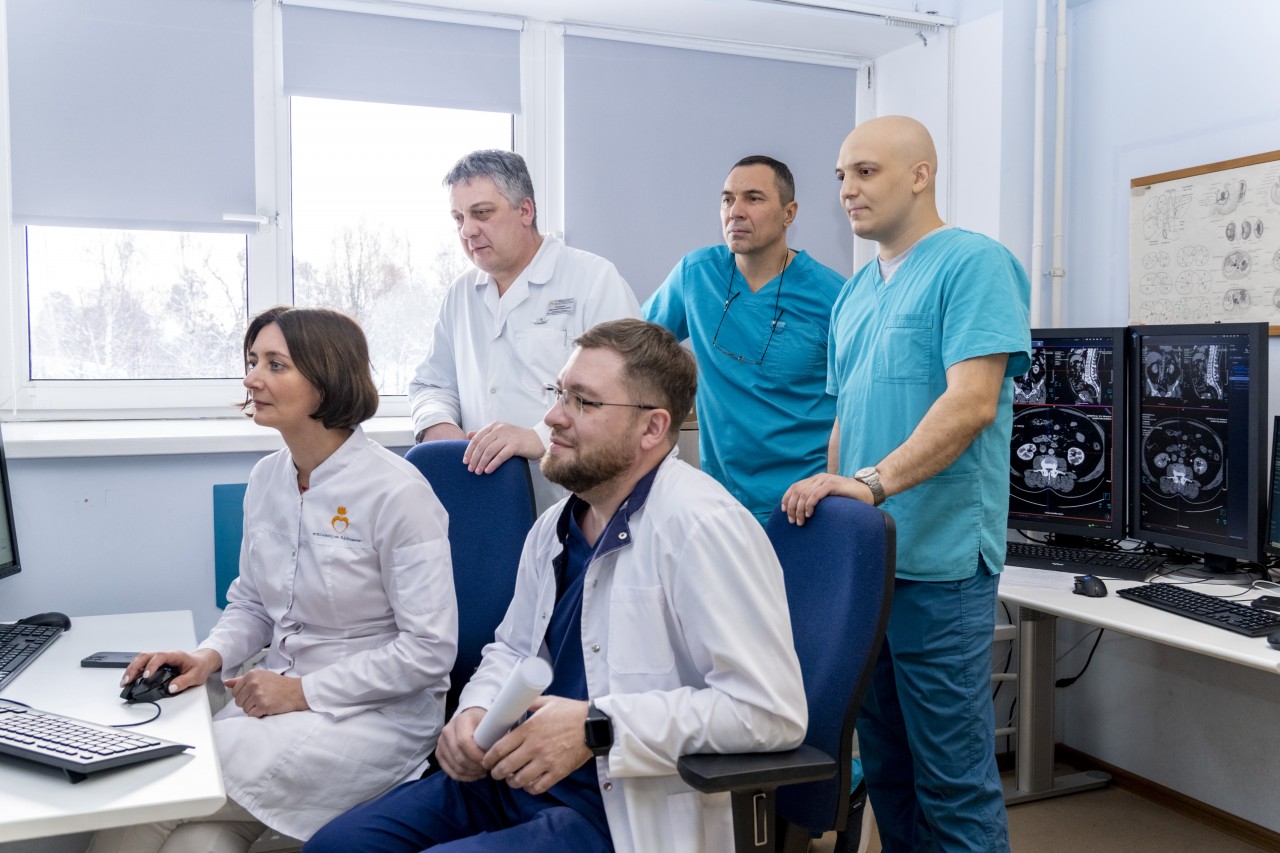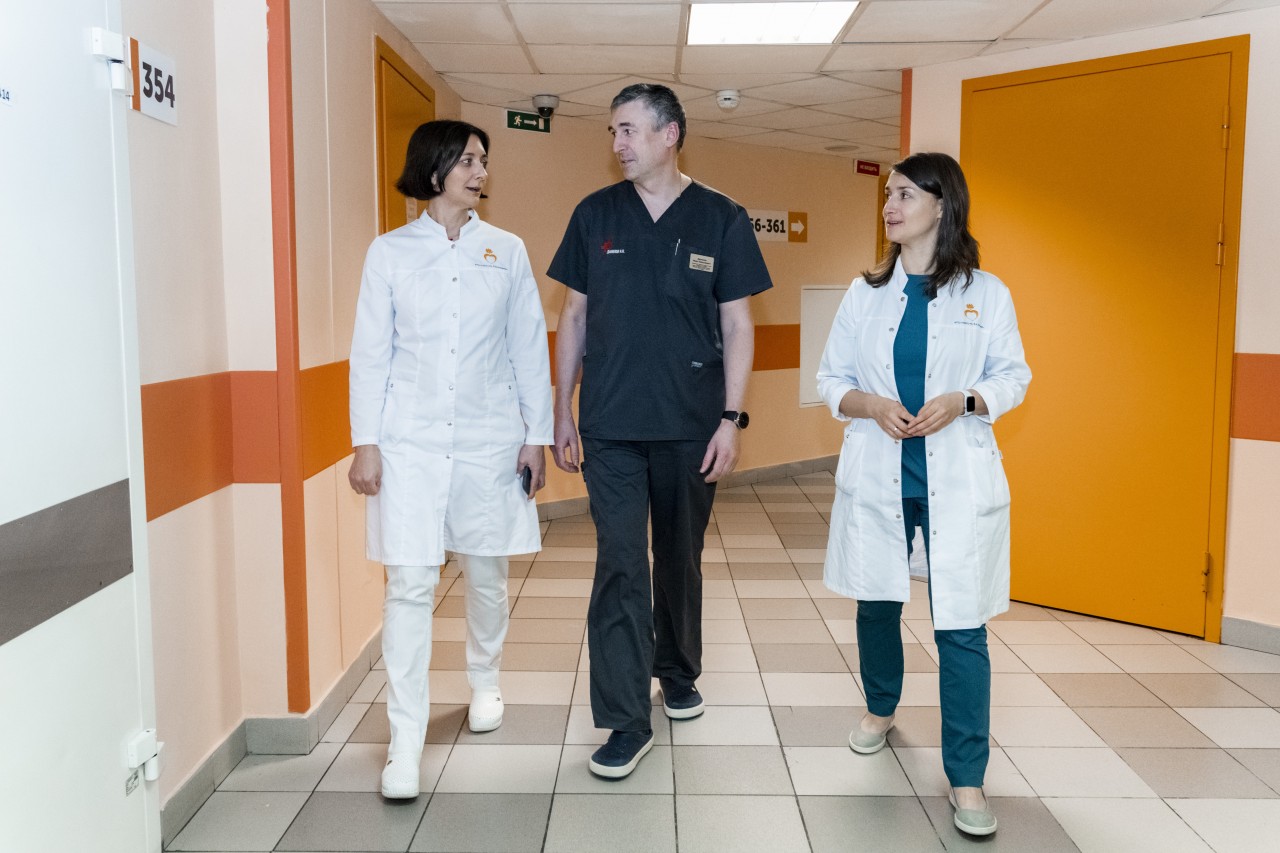
As known, when the coronary blood flow is disturbed and myocardial infarction develops, cardiovascular surgeons come to the rescue. Interruption of intestinal blood flow, or acute mesenteric ischemia (AMI) is one of the most severe conditions in abdominal surgery due to high mortality reaching up to 60–90%. In contrast to coronary heart disease, the main challenge in AMI is the early rapid diagnosis before the damage becomes irreversible, and the key task is to restore blood flow as early as possible.
Also, an important factor determining the high mortality rate due to late diagnosis and the impossibility of timely revascularization is the joint responsibility of general and vascular surgeons.
Today, a chance of a favorable prognosis for patients with AMI is possible with the timely interaction of a multidisciplinary team of cardiologists, general, cardiovascular and endovascular surgeons, radiologists and intensivists in a multidisciplinary hospital with the appropriate technical facilities (spiral CT in the vascular mode, angiography, endovascular procedures for revascularization of the intestinal vasculature.
Recently, a team of doctors at Almazov Centre managed to treat two such patients. The first patient presented with abdominal pain. The second woman was brought in by ambulance and was suspected of having angina pectoris or a heart attack. In both cases, doctors were able to diagnose a rare condition – mesenteric thrombosis and provide immediate medical care.
Both patients were diagnosed with AMI, which can be very tricky to diagnose. According to experts, in some cases the diagnosis can be difficult due to the absence of typical symptoms and the diverse clinical picture.
“There can be many reasons for abdominal pain. At the same time, the picture was atypical in both cases, however experience suggested that this diagnosis could not be excluded although it does not occur often. In such a situation, the mortality is 60 to 90% without urgent surgical treatment,” says Dr. Oleg Kornyushin, senior researcher at the Research Laboratory of Myocardial Metabolism.
Doctors at Almazov Centre were able to reach an accurate diagnosis, which was confirmed in both cases by urgent tests and CT scans. Having received the results, endovascular surgeons and doctors of the Department of Surgical Methods for Cancer Treatment made a joint decision on the need for an emergency surgery.

The teamwork of cardiologists, intensivists, CT diagnosticians Victoria Zaverza, Daria Karpova (under the charge of Ilona Basek, head of diagnostic radiology department), endovascular and abdominal surgeons under the charge of Ivan Danilov, head of intermediate surgery department, made it possible to quickly and correctly make a rare diagnosis and urgently operate on patients.
Both women underwent endovascular intervention without incisions. A probe was inserted via a puncture in the femoral artery in the groin, and blood clots were removed from the arterial lumen. The procedure was performed in conscious patients, and their pain disappeared right on the operating table.
“In case of acute intestinal circulatory disorders patients may first complain of abdominal pain and vomiting but a little later, the pain begins to fade. This means that the nerve fibers in the intestine are already affected by necrosis, and this is a very alarming signal,” comments cardiovascular surgeon Artem Gorbatykh, head of the Research Laboratory of Interventional Surgery.
Both patients were operated on by endovascular surgeon Narek Marukyan. The first patient was discharged on the third day after treatment. Prior to this, she underwent coronary angiography (because she was admitted with a suspected heart attack), with no intervention required. The second patient was discharged for outpatient treatment one week after the surgery.
According to Dmitry Nasedkin, head of the Department of Surgical Methods for Cancer Treatment, there is a time window of about 6 hours to maintain intestinal viability. If blood flow is not restored within this time, irreversible changes will occur, with the development of necrosis.
Such a successful collaboration is possible only in a multidisciplinary hospital. The specialists at Almazov Centre join their efforts to quickly diagnose, evaluate the results, make a joint decision on the management tactics and provide appropriate life-saving treatment.
